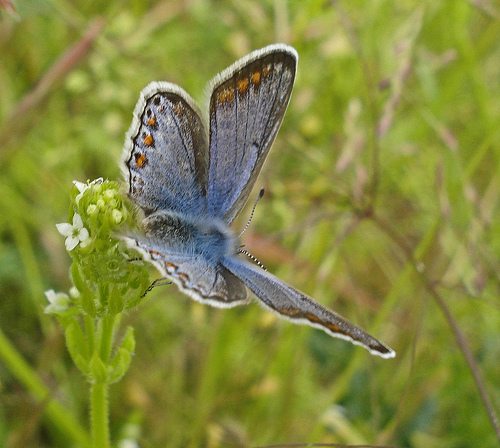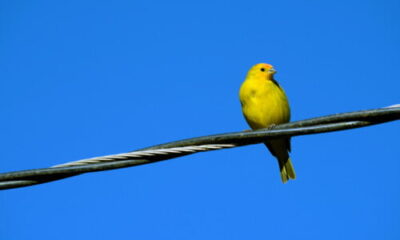

Environment
Invertebrate species have declined by 45% in 40 years, study finds
Populations of invertebrates such as insects, spiders and worms – many of which are essential to the health of ecosystems – have fallen by 45% on average over the past 40 years, according to a new study.
The paper, published in the journal Science, reports that invertebrate numbers have plummeted while the human population has boomed and suggests that humans are to blame.
In the UK, for example, the numbers of bees, butterflies and beetles have declined by 30% to 60% since the 1970s.
The authors say the crisis is at least as severe as the more publicised plight of endangered vertebrates.
“We were shocked to find similar losses in invertebrates as with larger animals, as we previously thought invertebrates to be more resilient,” said Ben Collen of University College London, a co-author of the study.
Many species also play vital roles in providing so-called “ecosystem services”. These include the natural recycling of waste, or the pollination services provided by bees and other insects.
It is thought that insect pollinators are essential to the cultivation of 75% of all the world’s food crops.
These pollinators are estimated to be worth around 10% of the economic value of the world’s entire food supply.
“While we don’t fully understand what the long-term impacts of these declining numbers will be, currently we are in the potentially dangerous position of losing integral parts of ecosystems without knowing what roles they play within it,” Collen added.
Another study published in Science this week found that the loss of animals is driving human trafficking and slavery.
The paper suggested that the rapid decline of wildlife that had acted as a food source in poor countries means that more children are needed for cheap labour, across Africa, Thailand, Burma and Cambodia.
Photo: Mick Talbot via flickr
Further reading:
Government calls for the public to help protect British bees
Big Butterfly Count gets started to monitor British butterflies
Bee-killing neonicotinoids linked to farmland birds decline
Ants play significant role in reducing global carbon emissions, suggests report
Extinction occurs 1,000 times faster with human influence, says new study


 Environment12 months ago
Environment12 months agoAre Polymer Banknotes: an Eco-Friendly Trend or a Groundswell?

 Features11 months ago
Features11 months agoEco-Friendly Cryptocurrencies: Sustainable Investment Choices

 Features12 months ago
Features12 months agoEco-Friendly Crypto Traders Must Find the Right Exchange

 Energy11 months ago
Energy11 months agoThe Growing Role of Solar Panels in Ireland’s Energy Future





























